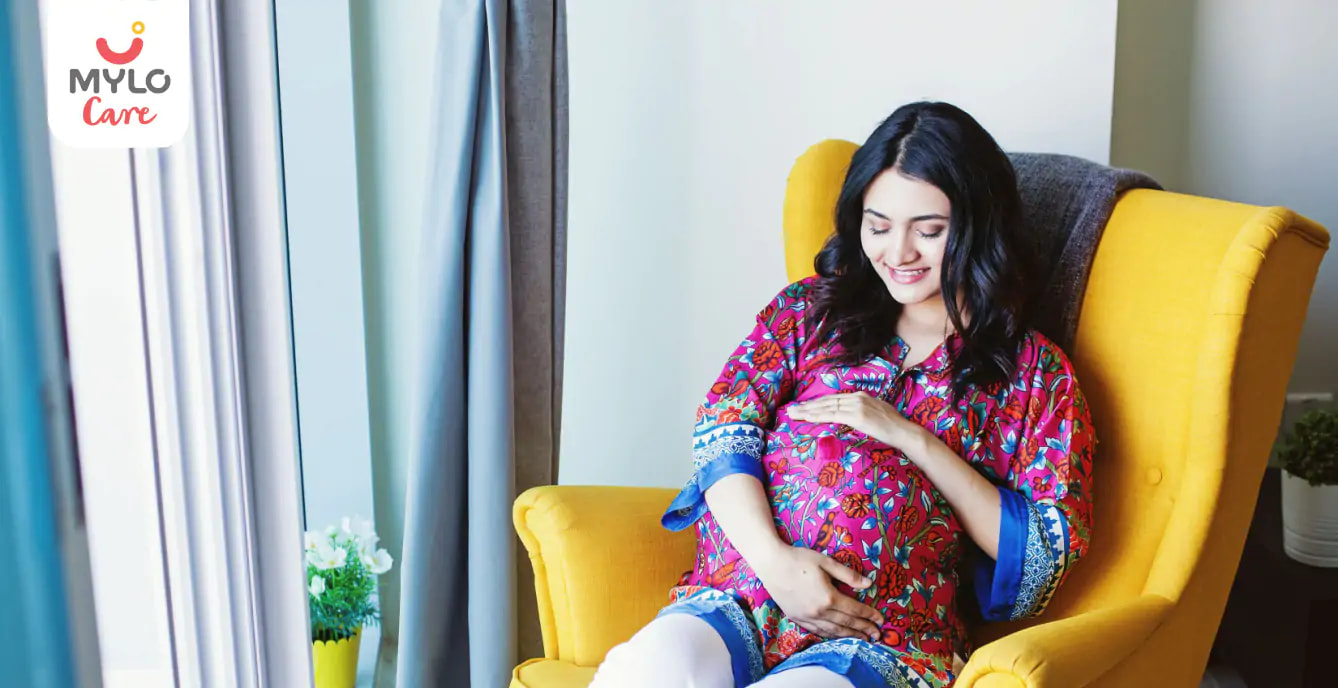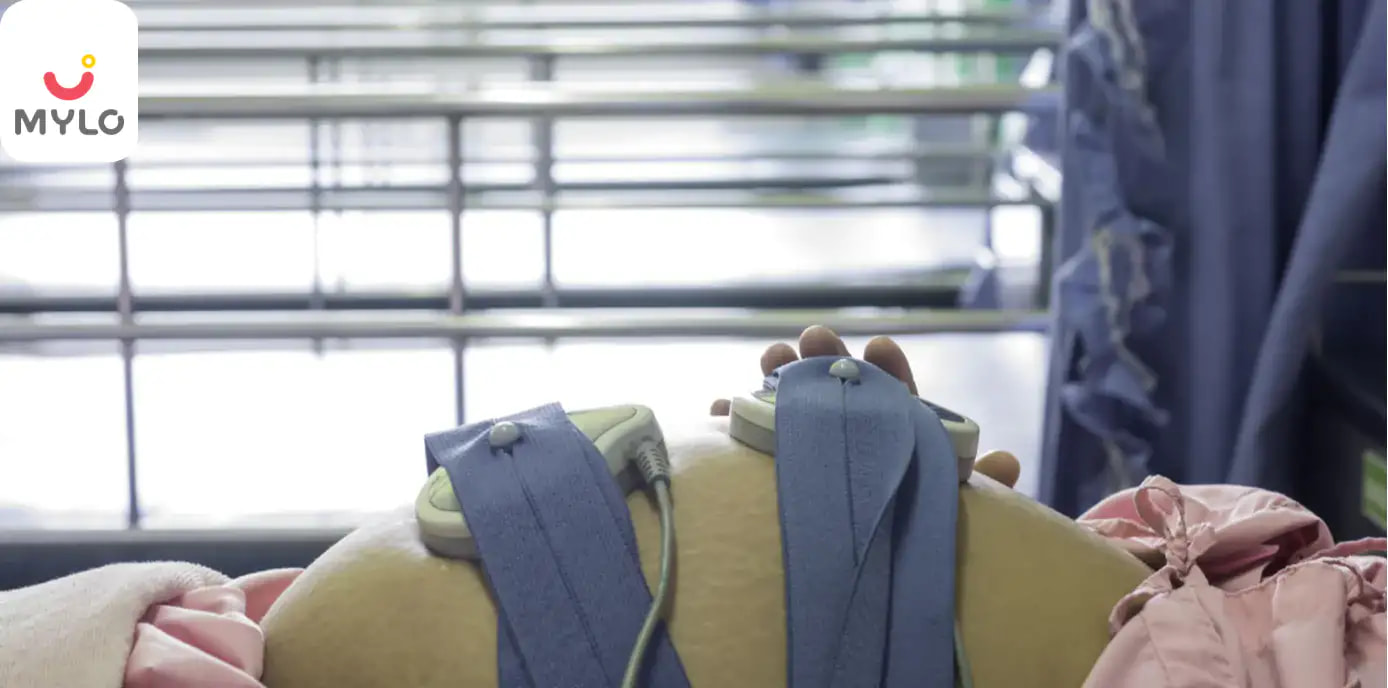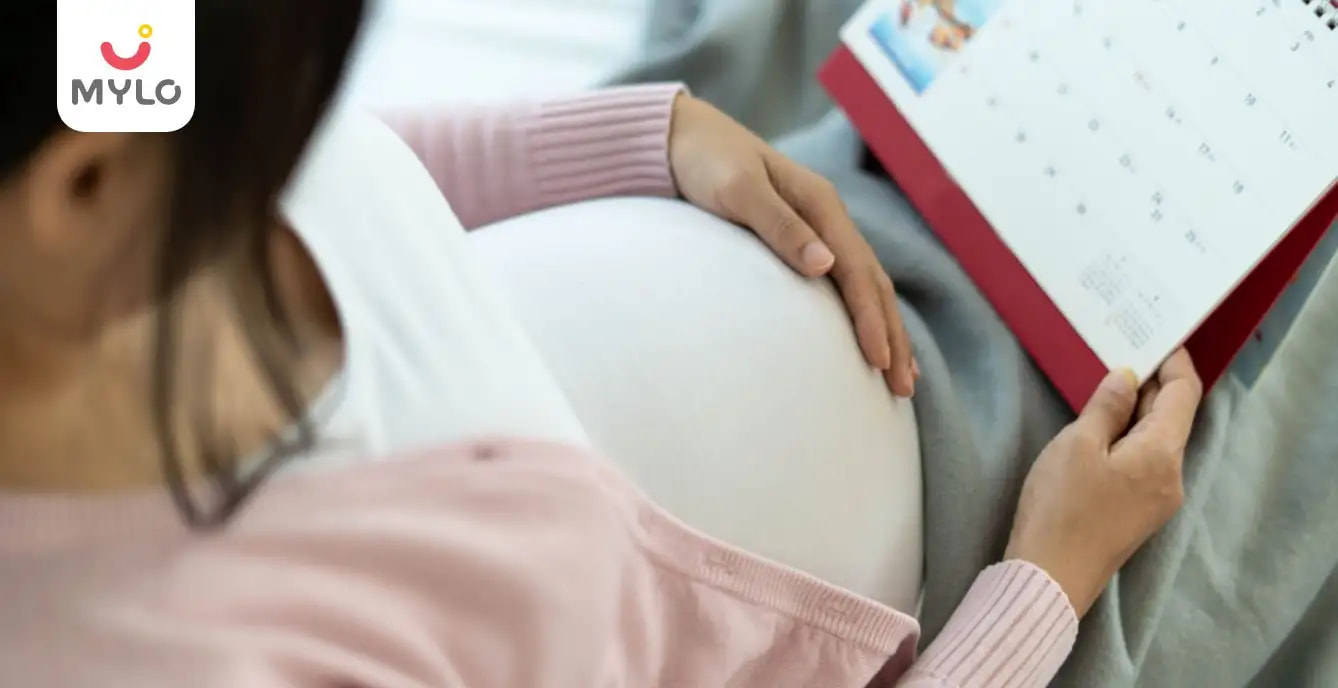Home

What are the Chances of Pregnancy at 40 Years and What to Expect?
In this Article

Pregnancy
What are the Chances of Pregnancy at 40 Years and What to Expect?
Updated on 3 November 2023
Are you going through a late pregnancy at 40 years? Worried about the outcome of your late pregnancy? Read on to know more.
As easy as it may sound, motherhood does not come so easily to all. Many women either choose to wait until their 40s or are forced to wait because of certain fertility issues. While having a baby in your 40s may have its benefits, there are more difficulties associated with this phase.
A late pregnancy at age 40 comes with its own set of healthcare challenges and you are not sure of what to expect. Let’s learn about the benefits and risks involved in late pregnancy at 40 years.
Benefits of a late pregnancy
While there are no direct benefits of having a baby so late in life, there are a few situations that may make you feel better:
- You feel more emotionally mature to handle the responsibility of a new baby in your life.
- You are financially more secure to raise your child.
- You are in a stable position in your career and can devote time to your baby.
- You have established a strong bond with your partner and both of you are ready for a baby.
Risks involved in pregnancy at 40 years
Given how modern science has progressed in the last few decades, it is relatively safe to have a baby at 40. However, preparing for a pregnancy at 40 comes with the following risks:
- High blood pressure.
- Gestational diabetes.
- Miscarriage.
- Birth defects such as down syndrome.
- Low birth weight baby.
- Ectopic pregnancy.
Late pregnancy complications
If you get pregnant at 40 years, the risks involved are complications such as low lying placenta or placenta praevia for the mother and child. Although these complications are commonly seen in older moms, you may not have these complications.
- Low lying placenta or placenta praevia
- Placental abruption.
- Having a big baby.
- Caesarean delivery.
- Stillbirth.
Pregnancy and age
Your age has a direct impact on your fertility and with your increasing age you may experience infertility and difficulty in getting pregnant. However, with the ever-evolving medical technology, women have been able to get pregnant at 40. These options include:
- Freezing the eggs when you are younger to get pregnant when you are older.
- Sperm banks.
- IVF or other infertility treatments.
- Surrogacy.
However, despite these options, your fertility does reduce as your age increases. This may be due to the following:
- Fewer eggs left for fertilisation.
- Unhealthy eggs.
- Increased risk of miscarriage.
- Improper release of the eggs from the ovaries.
- Increased risk of developing health conditions that affect fertility.
Preparing for pregnancy at 40 years
Regardless of your age, you will take some time to conceive successfully and get pregnant. If you have been trying for over 6 months and are above 35 years of age, then it is time to see a fertility specialist. Chances of a pregnancy at 40 is towards the lower side.
Your doctor will advise a few tests to ascertain the cause of your infertility. Once you cross 35 years of age, your chances of getting pregnant naturally reduce. However, certain treatment options that are available are as follows:
Fertility medicines
As you know, the natural fertility of women begin to decrease as their age increases. As a result, they may need to consume fertility medicines, which contain hormones that help can with successful ovulation.
Intrauterine Insemination (IUI)
Also known as artificial insemination, intrauterine insemination involves injecting the sperm directly into the uterus. If your partner is infertile, IUI treatment can help you get pregnant even as late as 40 years of age.
Assisted reproductive technology (ART)
Leveraging the assisted reproductive technology, the eggs and the sperm are removed from the respective partners. The egg is fertilised in the laboratory and then inserted into the female uterus to speed along the fertilisation process and remove any hindrances from it.
Late pregnancy at 40
Although getting pregnant at 40 years is in itself a challenging feat, there can be other issues with the mother’s health for late pregnancy. These include:
- More aches and pains in your bones and joints.
- Higher chances of developing gestational diabetes and high blood pressure.
- Pregnancy fatigue is more.
Late pregnancy and delivery
As your age increases, your chances of a vaginal delivery reduce. The fertility treatments may increase your chances of having a premature delivery. Due to the increase in health risks along with age, your chances of having a caesarean delivery increase to save both the mother and the unborn child. When you have a vaginal delivery at 40 years, your chances of giving birth to a stillborn baby increases.
While the probability of having a caesarean delivery is higher at 40 years, many women deliver healthy babies even when they have a late pregnancy. All you need to do is consult your doctor and understand the issues related to a late pregnancy. If you wish to have a vaginal delivery, then you will have to learn all the risks associated with pregnancy at 40 years. Speak to your doctor and get to know what you’ll need to have a normal vaginal delivery.
Avoid late pregnancy risks
If you wish to have a healthy pregnancy, these are the healthy habits that you must follow:
- Stop smoking.
- Stop drinking alcohol.
- Eat a healthy, nutritious, balanced diet.
- Lose weight before you try to conceive if you are obese or overweight.
- Maintain your ideal body weight.
- Manage your weight gain during pregnancy.
- Avoid junk food and unhealthy foods during pregnancy.
- Get vaccinated during pregnancy as per your prenatal schedule.
- Stay active and include some form of exercise in your pregnancy.
- Limit your caffeine intake before and during your pregnancy.
Second pregnancy at 40
Pregnancy at age 40 for the first time may feel a little overwhelming. A second child with a late pregnancy age of 40 years can be relatively easy. You are experienced and you know what to expect. If you are having a second pregnancy at 40 years old, bear in mind all the above points as they are true irrespective of the number of pregnancies.
Summary
It is your choice if you wish to have a baby at 40. But you need to be aware of all the benefits and risks associated with late pregnancy. Speak to your doctor before you start trying to conceive. Your doctor will assess your risks and health status and give you a green signal to start your family soon. All the best on your conception journey.
References
1. Bouzaglou A, Aubenas I, Abbou H, Rouanet S, Carbonnel M, Pirtea P, Ayoubi JMB. (2020). Pregnancy at 40 years Old and Above: Obstetrical, Fetal, and Neonatal Outcomes. Is Age an Independent Risk Factor for Those Complications?. NCBI
2. ESHRE Capri Workshop Group, (2005). Fertility and ageing, Human Reproduction Update, Volume 11, Issue 3. academic.oup.com



Written by
Priyanka Verma
Priyanka is an experienced editor & content writer with great attention to detail. Mother to an 11-year-old, she's a ski
Read MoreGet baby's diet chart, and growth tips

Related Articles
RECENTLY PUBLISHED ARTICLES
our most recent articles

Diet & Nutrition
গর্ভাবস্থায় আলুবোখরা: উপকারিতা ও ঝুঁকি | Prunes During Pregnancy: Benefits & Risks in Bengali

Diet & Nutrition
গর্ভাবস্থায় হিং | ঝুঁকি, সুবিধা এবং অন্যান্য চিকিৎসা | Hing During Pregnancy | Risks, Benefits & Other Treatments in Bengali

Women Specific Issues
স্তনের উপর সাদা দাগ: লক্ষণ, কারণ এবং চিকিৎসা | White Spots on Nipple: Causes, Symptoms, and Treatments in Bengali

Diet & Nutrition
গর্ভাবস্থায় পোহা: উপকারিতা, ধরণ এবং রেসিপি | Poha During Pregnancy: Benefits, Types & Recipes in Bengali

Diet & Nutrition
গর্ভাবস্থায় মাছ: উপকারিতা এবং ঝুঁকি | Fish In Pregnancy: Benefits and Risks in Bengali

Diet & Nutrition
গর্ভাবস্থায় রেড ওয়াইন: পার্শ্ব প্রতিক্রিয়া এবং নির্দেশিকা | Red Wine During Pregnancy: Side Effects & Guidelines in Bengali
- ইনার থাই চ্যাফিং: কারণ, উপসর্গ এবং চিকিৎসা | Inner Thigh Chafing: Causes, Symptoms & Treatment in Bengali
- গর্ভাবস্থায় ব্রাউন রাইস: উপকারিতা ও সতর্কতা | Brown Rice During Pregnancy: Benefits & Precautions in Bengali
- Velamentous Cord Insertion - Precautions, Results & Safety
- Unlock the Secret to Flawless Skin: 7 Must-Have Qualities in a Face Serum
- Unlock the Secret to Radiant Skin: How Vitamin C Serum Can Transform Your Complexion
- Gender No Bar: 10 Reasons Why Everyone Needs a Body Lotion
- Unlock the Secret to Radiant Skin How to Choose the Perfect Body Lotion for Your Skin Type
- Top 10 Reasons to Apply a Body Lotion After Every Bath
- Communication in Toddlers: Milestones & Activities
- How to Improve Vocabulary for Toddlers?
- A Comprehensive Guide to Understanding Placenta Accreta
- Vulvovaginitis in Toddlers Causes, Symptoms and Treatment
- A Comprehensive Guide to Understanding Cerebral Palsy in Children
- Bitter Taste in Mouth During Pregnancy: Understanding the Causes and Remedies


AWARDS AND RECOGNITION

Mylo wins Forbes D2C Disruptor award

Mylo wins The Economic Times Promising Brands 2022
AS SEEN IN

- Mylo Care: Effective and science-backed personal care and wellness solutions for a joyful you.
- Mylo Baby: Science-backed, gentle and effective personal care & hygiene range for your little one.
- Mylo Community: Trusted and empathetic community of 10mn+ parents and experts.
Product Categories
baby carrier | baby soap | baby wipes | stretch marks cream | baby cream | baby shampoo | baby massage oil | baby hair oil | stretch marks oil | baby body wash | baby powder | baby lotion | diaper rash cream | newborn diapers | teether | baby kajal | baby diapers | cloth diapers |








